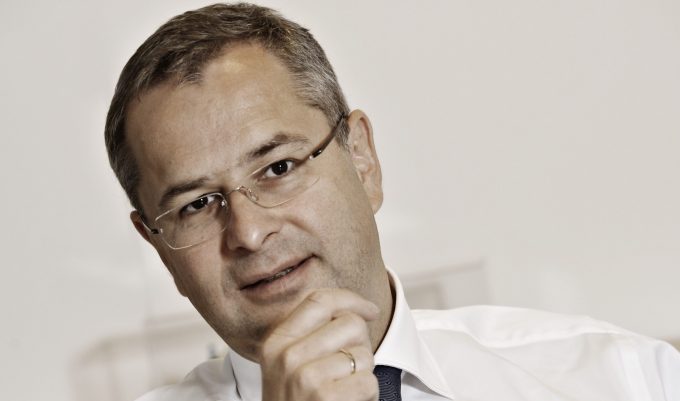Gemini and logistics growth now the focus as APMM posts healthy profits
Strong freight rates and resilient container shipping volumes for most of last year delivered healthy ...

Freight forwarders offering supply chain solutions to shippers should have nothing to fear from Maersk’s ambition to be the “UPS of container shipping”.
So said Maersk Line chief executive Soren Skou, speaking at this week’s TPM conference in Long Beach.
He said: “Freight forwarders make up 40-45% of our business and I don’t see that changing – the most important thing for freight forwarders is to have the best service at the lowest possible cost.
“I do think that if all a freight forwarder ...
Trump tariffs see hundreds of cancelled container bookings a day from Asia
'Disastrous' DSV-Schenker merger would 'disrupt European haulage market'
'To ship or not to ship', the question for US importers amid tariff uncertainty
'Chaos after chaos' coming from de minimis changes and more tariffs
List of blanked transpac sailings grows as trade war heats up and demand cools
EC approves DSV takeover of DB Schenker
Shippers in Asia restart ocean shipment bookings – but not from China
Forto 'sharpens commercial priorities' as it lays off one-third of staff
India withdraws access for Bangladesh transhipments, in 'very harmful' decision
'Tariff hell' leaves industries in limbo – 'not a great environment to plan'
IndiGo fleet expansion plan will include a major push to boost cargo volumes
Pre-tariff rush of goods from US to China sees air rates soar, but not for long

Comment on this article
DAVID FERNANDEZ
March 11, 2019 at 10:15 pmI think they do not take into account Maersk’s poor service to the Caribbean area, starting with the fact that they do not allow consolidators to get rates or board them with the excuse that they work only with direct shippers,
What Maersk CEO believes about it?
Christian Moller
March 17, 2019 at 11:32 pmFreight forwarders can’t be sure about this statement. The big shipping lines have to take more control of what’s inside the containers they carry (that is traditionally a forwarders job). Otherwise, they can’t compete against the huge web-portals in the long run.
Are the shipping lines (including Maersk), doing themselves a big non-favour by leaving utilization of the containers to others? Full capacity of a ship carrying 6000 TEUs (example) is fine, but what if all those TEU’s have 30% or more not utilized capacity inside? Who pays for that in the end?